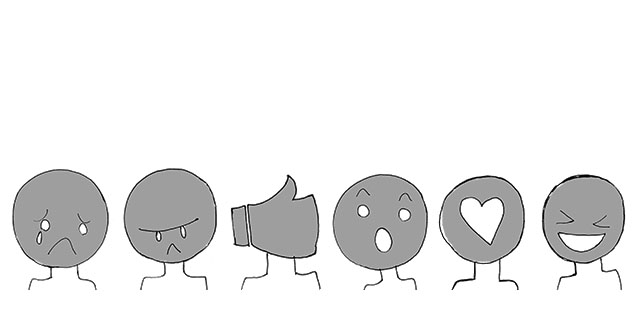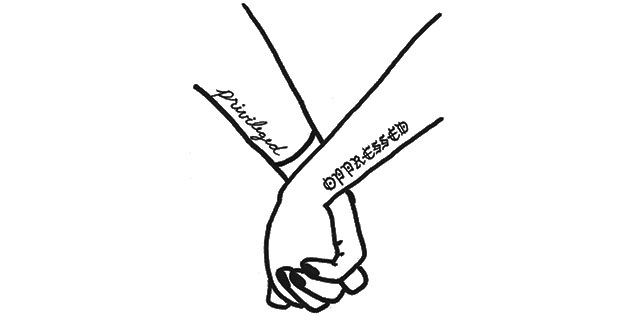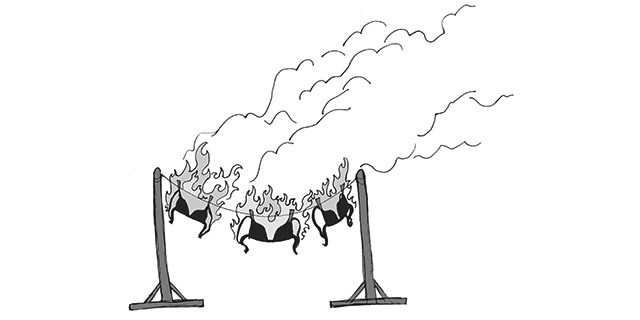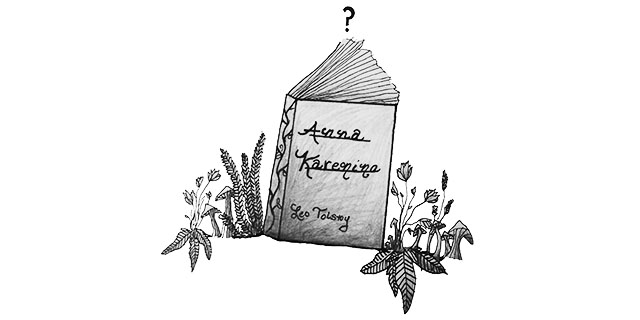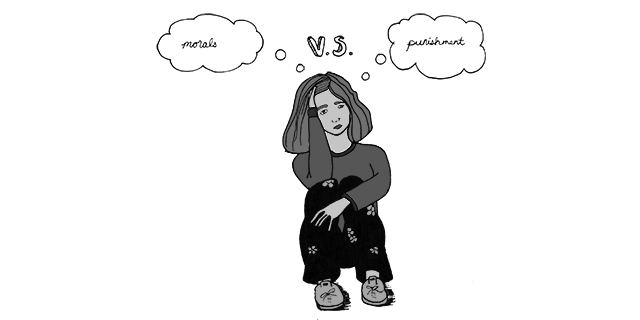
Do we operate out of moral goodness? Or do we act out of fear of consequence: the desire to avoid the resulting guilt or shame due to a particular action? About a year ago, I listened to a speaker at my church discuss why humans make decisions. As he explored the psychological steps behind someone choosing to do something and delineated differences between the reasons, I found myself identifying more with the reasoning of fear of moral consequence rather than with the reasoning of the innate morality of the human heart. More often than not, I notice myself choosing to carry something out based on my prudence.
Children learn by making mistakes and then correcting the wrong in those actions. As we grow up, our parents and other adults instruct us on good versus bad behavior. For me, at least, if I was ever chastised for doing something, I would feel a wave of shame or guilt wash over me, telling me not to repeat my actions. Maybe it’s just me, but I absolutely hated (and still hate) that feeling more than anything.
I experienced this wave when I visited my grandmother’s house with my twin brother and mother when I was four or five. My grandmother—“Gammy,” as I called her—always wore stacks of expensive-looking, thin, gold bangles on her wrist. As a jewelry-obsessed kid, I always eyed those bracelets with wonder and envy. One visit, I went up to Gammy’s bathroom to wash my hands and saw a pile of the beautiful bracelets lying next to the sink. I look back on this situation as quite entertaining—almost something out of a movie—but what do you expect a curious girl to do in this situation? Well, take three of those bracelets and stuff them right up the sleeve of her shirt, that’s what.
Yes, I stole my dear Gammy’s bracelets. Or rather, I attempted to. Right after leaving my grandma’s house (yes, I did make it out of her house without raising any suspicions of me stealing anything—look at what a young hooligan I was!), and as we were walking down the steps to my mom’s car, I whispered to my mom, “Look!” and rolled up my sleeve to reveal the bracelets. Yes, I know what you’re thinking: probably not the smartest move if I wanted to maintain my kleptomania career. I think I was really just so proud of myself for accomplishing such a daring feat. As soon as my mother saw my wrists, her mouth dropped open and her eyes flared wide. Horrified, she dragged me back up to my grandmother’s door and made me ring the doorbell, give my grandmother back her bracelets and apologize profusely, my face basically the color of a tomato. For weeks, I played the affair over and over again in my head, and I’m pretty sure I obstinately screamed at my mother “NO!” every time that she said we were going back to Gammy’s house.
So, moral of the story? Never again did I steal something. While this incident perhaps stopped my future in burglary in its tracks, I ask myself today: do I not steal because I have ethicality in me to not? Or do I not steal because I possess fear of obligatory shame?
Perhaps morality and shame are intertwined. Our moral compass is dictated by shame and guilt because we learn by experiencing what not to do, not what to do, or because we can understand right and wrong and feel shame in wrong. The negative effect of an action on someone—as I have learned through my life—is far more powerful than a positive effect of an action on someone. So maybe these observations of right versus wrong that we make throughout our maturation harbor the root of internalization of shame; from our fear of consequence grows our ability to make moral decisions.

